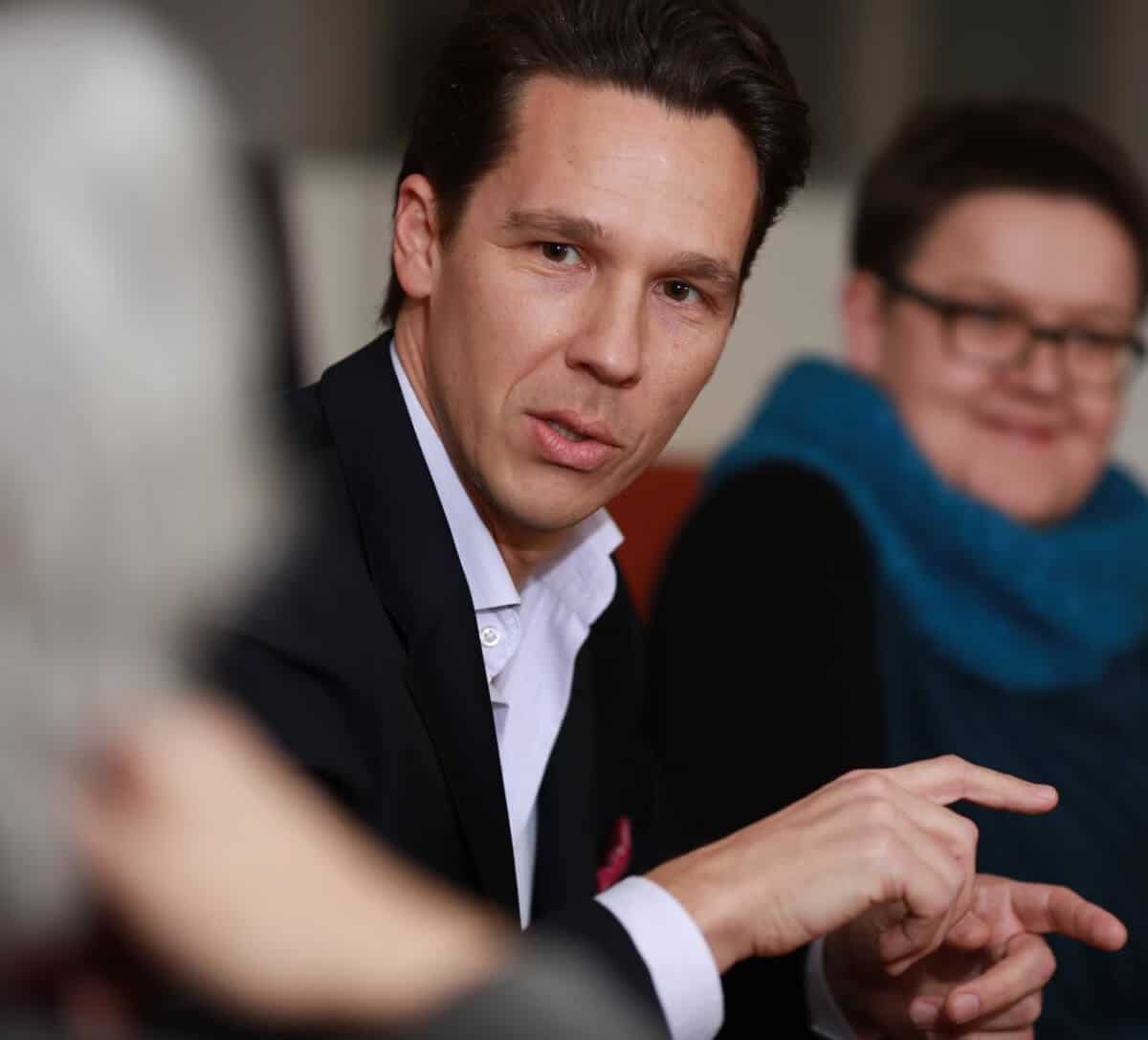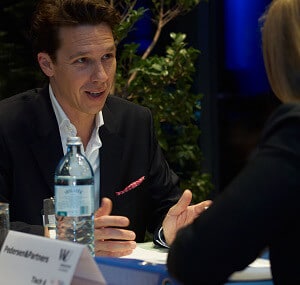November 20th, 2013 - Vienna, Austria - An interview by MBA-friends.com where Conrad Pramböck, Head of Compensation Consulting at Pedersen and Partners, talks about three important aspects of his life as a successful graduate.
BUSINESS
Conrad, you work as a Head of Compensation Consulting for Pedersen & Partners, one of the leading international Executive Search firms. Can you tell us a little bit more about the company and your role?
I have spent my whole career as a consultant specialized on one subject only: Salaries.
In short words: I’m advising HR directors (and maybe also your boss) on how much to pay you.
 Recently you have led a Pedersen & Partners global survey among 1,700 executives in 330 companies in 17 countries. Can you tell us your key findings and your conclusion?
Recently you have led a Pedersen & Partners global survey among 1,700 executives in 330 companies in 17 countries. Can you tell us your key findings and your conclusion?
The global average cash compensation of a top executive in a corporation with more than 100,000 employees is 1.35 million Euros gross per year. This amount is almost equally divided in 660,000 Euros base compensation and 690,000 Euros short term bonus.
This is really a lot of money for the world’s leading top executives. However, the way they earn this much money is always the same:
- In the beginning of their career they work hard to develop their knowledge and skills.
- In the course of their career they find people who trust their skills.
- They build their professional network, and eventually they are offered a highly paid job.
I found that all successful careers revolve around
- building competence
- establishing trust
- and the development of your personal network.
What reputations have business school graduates among companies in Austria and how often do they seek for MBAs?
Education is important, in particular in Austria, where university graduates and MBA alumni still have much better career opportunities than non-graduates.
However, education is not everything. An academic title makes is it easier to get to a job interview. Then, the decision is almost entirely based on your personality.
You are also the author of the book in German language “Jobstars” in which you talk about the myth of the happy self-employment and how employees can learn from entrepreneurs, can you tell us more about it?
A few years ago, I conducted a study on professional success. I found that each one of us has own professional goals, which also change over time. It is completely irrelevant for your personal happiness whether you are a top manager, a specialist or you run your own business.
In the public opinion, you have really made it when you start your own business and make a fortune selling it to Facebook or Google. During my research I found that 90 % of the people are much happier being an employee of a company enjoying a high, stable income. On the other hand, 30 % of start-up companies in Austria fail within the first three years.
My point is that – based on my research – employees have a much better life than self-employed. They earn much more money in 90 % of the cases, they have more stability, a regular income, and protection. They can go on vacation without worrying about their personal finance. A self-employed person is said to have more freedom. Well, he doesn’t have a boss but he sure has clients, and that is usually much higher pressure.
 What is the job that you desire to have in the future?
What is the job that you desire to have in the future?
I’m completely happy in my current job at Pedersen & Partners, where I enjoy great freedom. I do business the way I want to, I work with my international colleagues, and I take the time to do related work. For example, I am a lecturer at several universities and MBA programs.
Do you have any short-range and long-range goals that you want to share with community (maybe somebody will be able to help you)?
I want to be the first person that comes to your mind when you have questions about your salary and your career.
Any job values that you would like to share with us?
You cannot be successful in business on your own. You need to find and develop people who trust you and whom you trust.
NETWORKING
 Companies are increasingly using social networks as a means of growing their circle of business contacts and promoting themselves online. How is networking important for you and your career?
Companies are increasingly using social networks as a means of growing their circle of business contacts and promoting themselves online. How is networking important for you and your career?
Networking is extremely important. Don’t try to do everything yourself. Find others to assist you.
When my previous employer went bankrupt a few years ago, I didn’t have to send my CV and ask for a job interview. People from my network called me and offered me to work for them. My current employer Pedersen & Partners was one of them. My network was the reason why I could sign an employment contract and start a new job a few weeks later. This gave me a feeling of great strength in a time of great weakness.
What networking tools are you using for growing your business network?
Very simple: I talk to everyone I know about what I want to do and connect through LinkedIn and Xing. I also ask: “Who in your network could help me with what I have in mind?” When people trust you, they are always willing to help.
Who would you like to meet and connect with?
I seek people who I can support with my knowledge on salaries and career.
FUN
 How would your friends describe you in few words?
How would your friends describe you in few words?
Everyone would give you a different description. I have many different friends who resonate with me on different qualities.
What do you do when you don't work? What are your hobbies?
I am a very good piano player. I juggle with 3, 4, or 5 balls.
Are you married / having children?
I have a daughter and I’m in a relationship.
Do you prefer/play any sports?
I love jogging and sports. I used to play soccer and basketball, but don’t find the time to do it on a regular basis.
What kind of books do you like reading? How often do you read?
I enjoy reading a great variety of books from business to novels and even fairy tales for my daughter.
Written by Ivan Vucetic for MBA-friends.com
